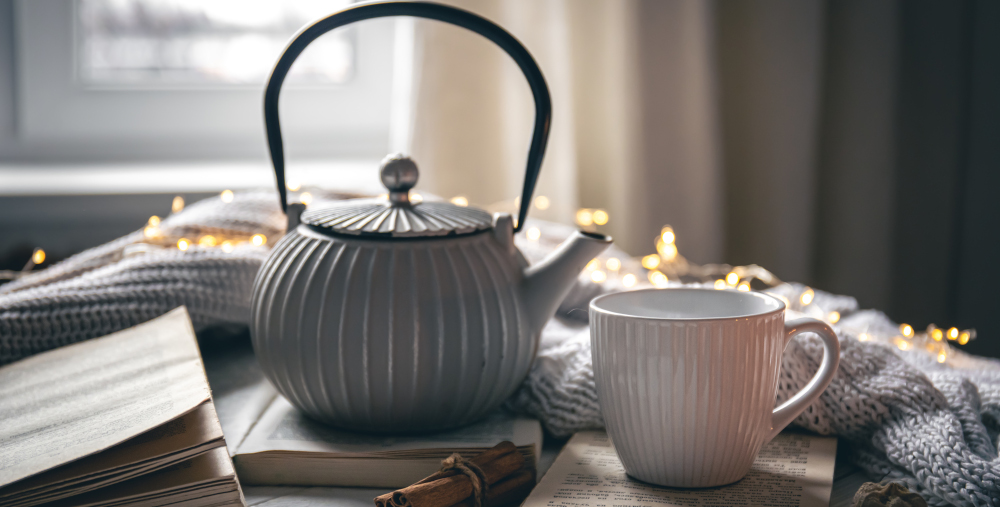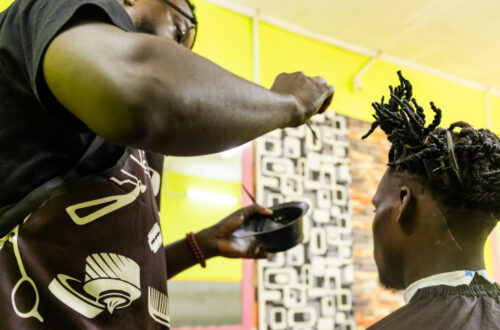
Boiling Water, Boiling Point, Why Kettles Know All Our Secrets
There’s something suspiciously honest about the sound of a kettle boiling. It starts off quiet, almost like it’s pretending it’s not listening. A soft purr in the background. Then, it begins to hiss, not shout, not scream, but hiss, like it’s letting you know it knows. And by the time it’s reached full boil, the kitchen is no longer just a room. It’s a confessional. And the kettle? The kettle is the therapist, the priest, and the snitch rolled into one stainless steel oracle.
South Africans don’t just drink tea. We process through it. Someone dies? Kettle. Someone’s born? Kettle. Breakup? Kettle. New job? Kettle. Power’s back on? Kettle. The water doesn’t even need to touch the teabag before you’ve already started opening up. Before you’ve even found a mug, you’re mid-rant about your cousin’s husband or that text message that read “okay” with a full stop. Dangerous stuff.
Because here’s the truth, the kettle knows what’s coming before you do. It’s always plugged in before a secret falls out. Before someone gets brave enough to say, “I’m not actually okay.” Before someone confesses, “I went through their phone.” The ritual is almost spiritual. You don’t sit someone down for an ambush intervention. You ask, “Can I make you some tea?” And if they say yes, you both understand that something is about to break.
Every South African household has that kettle. Some hum, some wheeze like dying robots, and some, the stovetop ones, shriek like they’re about to alert the whole neighbourhood. But they all serve the same sacred role, they buy us time. Time to collect ourselves. Time to plan the story. Time to soften the truth. Because something about hot water makes people more honest. More fragile. Maybe it’s the pause, maybe it’s the quiet, but the moment that lid clicks open, we start pouring.
You ever notice how a kettle never boils when you’re genuinely relaxed? It’s always mid-crisis. Mid-chaos. The dog just threw up, your mom just called, Eskom just reminded you who’s boss, and then, suddenly, you’re standing there, hand on the counter, watching water go from calm to chaos in seconds. The metaphor writes itself.
We speak in whispers while the kettle boils, like we’re negotiating with fate. Like the kettle’s sound is a buffer between us and whatever we’re too scared to say out loud. The moment it clicks off? That’s the drop. The truth tumbles out. And God help you if you put the sugar in before the water, someone will correct your entire life in that kitchen.
There are fights that start and end at the kettle. There are love declarations that begin with, “I was just making tea and I started thinking…” There are mothers who stir Rooibos like it’s a spell, who know when something’s wrong just by how long you stand in front of the counter. There are friends who don’t say a word, just put the kettle on and sit. No explanation needed. Because sometimes the gesture is the language.
In township homes, in high-rise flats, in suburban kitchens, in government housing, the kettle is the equaliser. It doesn’t care what car you drive or what shoes you wear. It doesn’t care what you think you’ve achieved. It only asks, are you ready to talk?
 And sure, we joke about tea being gossip fuel, and it is, but it’s also how we release pressure without erupting. We laugh. We overshare. We let the steam out, literally and figuratively. Because everyone knows the worst kind of drama is silent. And the kettle knows when silence isn’t peace, it’s tension disguised as manners.
And sure, we joke about tea being gossip fuel, and it is, but it’s also how we release pressure without erupting. We laugh. We overshare. We let the steam out, literally and figuratively. Because everyone knows the worst kind of drama is silent. And the kettle knows when silence isn’t peace, it’s tension disguised as manners.
You can track someone’s life by how they treat their kettle. Students don’t clean it. Newlyweds buy the fancy kind. Older people still have that reliable metal one with the melted handle and the rust spots that somehow still works. And in every home, there’s a preferred mug. Don’t touch it. You’ll start a war. That chipped green one? That’s the heartbreak mug. The one from a Spar promo? That’s for strangers. The floral one with the faded gold trim? That’s been passed down like trauma, and tea leaves.
Tea isn’t just tea. It’s timing. It’s code. “Let me make tea” doesn’t just mean “you look cold.” It means “I see you.” It means “pause.” It means “you’re safe here.” And there’s something almost defiant about that. In a world that screams for productivity, the kettle tells you to wait. To slow. To sit down and confront what’s been bubbling under.
Because boiling water doesn’t lie. It can’t pretend. It gets loud. It lets off steam. And maybe that’s the lesson. Maybe the kettle knows what we keep trying to forget, that you can’t hold it in forever. That sometimes you need to hiss and whistle and scream before you settle. That sometimes what needs to boil over… should.
So next time someone offers you tea during a tough moment, don’t say no. Say thank you. Because what they’re really offering is space. Time. Softness. A chance to be a little human in a world that asks you to be sharp and efficient and online all the time.
The kettle is where our real conversations live. Not on the feed. Not in the comments. But in the quiet ritual of boiling water, shaky hands, and stories that don’t need a punchline, just a pour.



